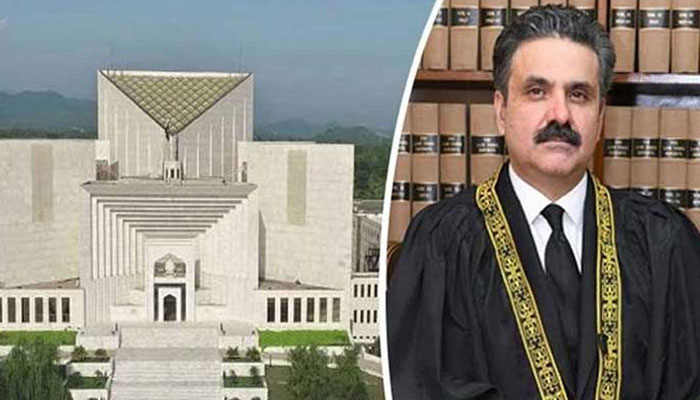

[ad_1]
ISLAMABAD: Under the 26th constitutional amendment, the parliamentary committee on Tuesday nominated Justice Yahya Afridi as the 30th Chief Justice of Pakistan.
His appointment comes following the retirement of Chief Justice Qazi Faez Isa.
Born on January 23, 1965 in Dera Ghazi Khan, Justice Afridi has a strong educational background. He completed his primary education from Aitchison College Lahore and graduated from Government College Lahore. Later he obtained Master of Arts in Economics from Punjab University.
Justice Yahya Afridi hails from a family with a rich tradition of public service, belonging to the Adam Khel section of the Afridi tribe located in the Kohat Frontier Region. His upbringing in such a family has undoubtedly influenced his commitment to justice and service to the nation.
His academic pursuits took him further afield when he received a Commonwealth Scholarship to pursue an LL.M. from Jesus College at the University of Cambridge.
Justice Afridi was appointed to the Supreme Court of Pakistan on 28 June 2018. Since then, he has been involved in a number of high-profile cases, including his participation in the larger bench hearing the presidential reference on the execution of former Prime Minister Zulfiqar. have been Ali Bhutto. Notably, he wrote a dissenting note in the judgment regarding reserved seats in the Sunni Union Council case.
His legal opinions and contributions have focused on administrative law and the intersection of law and public service. Afridi’s background as a lecturer at Khyber Law College, University of Peshawar, where he taught international law, labor law, and administrative law, reflects his commitment to nurturing the next generation of legal minds.
Justice Afridi started his legal career in 1990 when he was admitted to the Peshawar High Court as an advocate. His dedication to the law saw him rise through the ranks. As of 2004, he was practicing as an advocate in the Supreme Court. His legal expertise included the role of Assistant Advocate General of Khyber Pakhtunkhwa.In 2010, he was appointed as an Additional Judge of the Peshawar High Court, a position he held until he was confirmed as a permanent judge on 15 March 2012. He became the Chief Justice of Peshawar High Court on 30 December 2016. He makes history as the first judge of the Federally Administered Tribal Areas to hold the post.
[ad_2]
Source link
